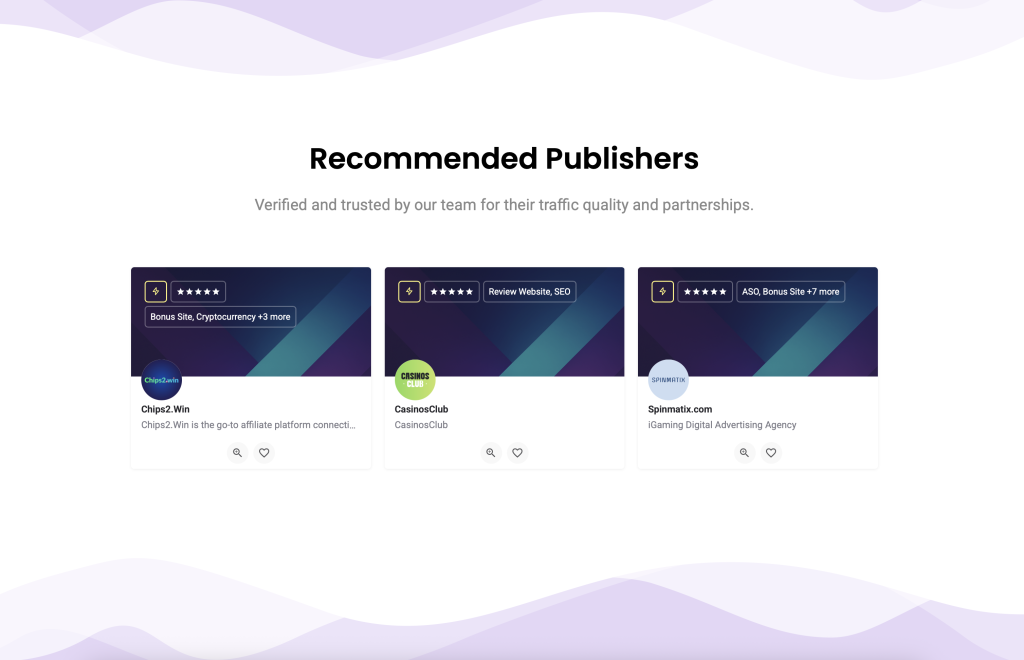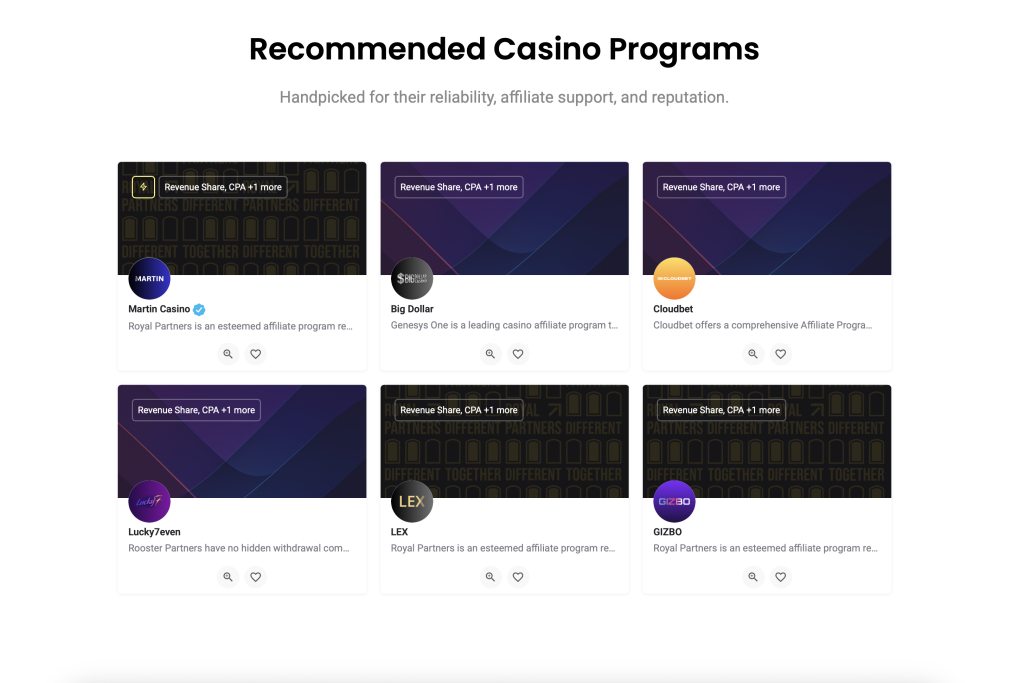-
JoinedJuly 24, 2024
-
Active listings86
- Direct message
Lauta Media
iGaming Affiliate
Ad Networks
Leadinboxxx
iGaming Affiliate
Affiliate Network, Full Service
Horbax Media
iGaming Affiliate
Full Service
DepositWithdraw.com
iGaming Affiliate
Bonus Site
Media Pro Traffic
iGaming Affiliate
Full Service
Rakuten Advertising
iGaming Affiliate
Affiliate Network, Full Service


